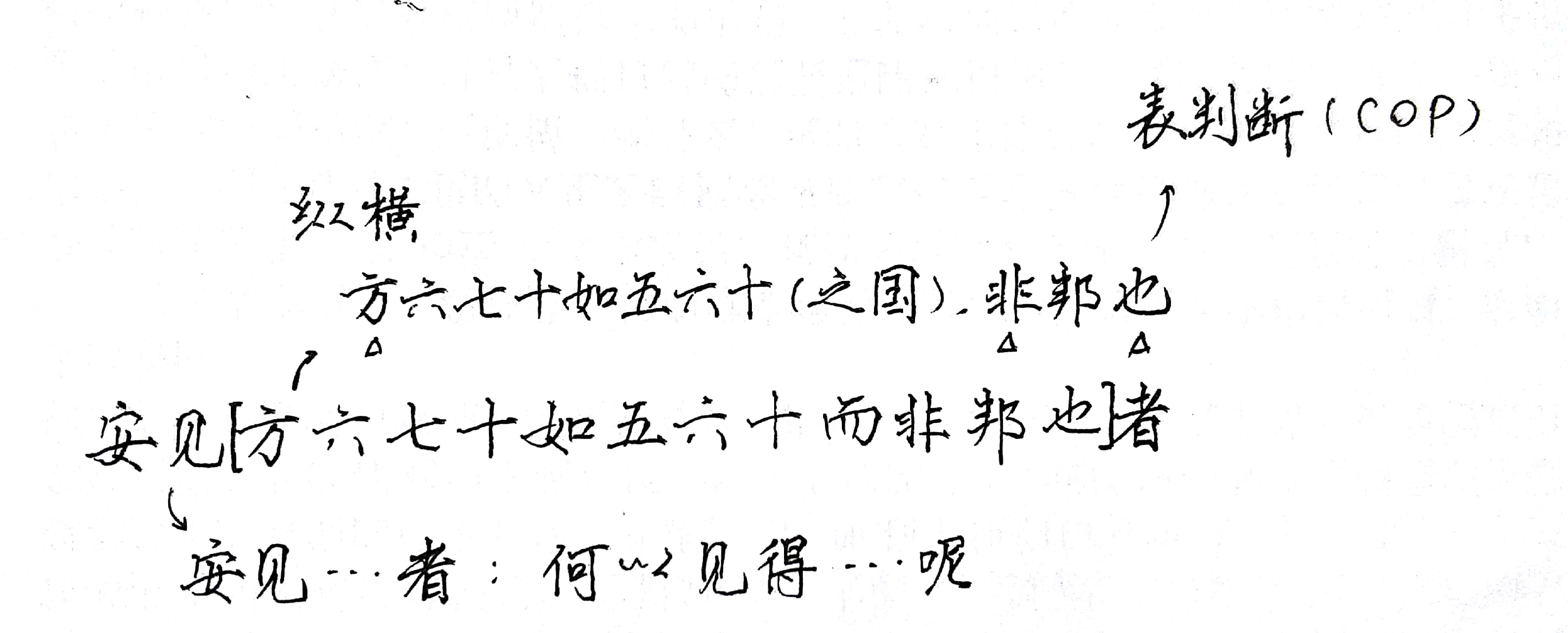I've been doing my research on 者 and in one of the articles I read I came across a sentence from "Analects":
安见方六七十如五六十而非邦也者。
Glosses for this example are as follows:
where see size six-or-seventy or five-or-sixty and NEG country COP ZHE
I don't really understand why is 也 glossed as copula, is anyone able to explain why would it be treated as such instead of being a final particle? Is it because 者 is there too, probably also as a sentence final particle?
 So you can treat what is bracketed as an independent clause and 安见……者 to make a rhetorical question...
I hope some true expert will make it clear because the Analects is quite difficult for us, too. XD
PS.
We can have a look at the context: 亦各言其志也已矣(Which shows 孔子 is not quite satisfied with their answers.)He points out that 安见方六七十如五六十而非邦也者 which implies that 冉有's answer is basically the same as 子路, except for that he is modest. So the sentence should be explained as "Though 子路 said about 方六七十,如五六十 without mentioning 邦, it's no difference that he also wants to administer a 邦国(“大曰邦,小曰国”《周礼》).
So you can treat what is bracketed as an independent clause and 安见……者 to make a rhetorical question...
I hope some true expert will make it clear because the Analects is quite difficult for us, too. XD
PS.
We can have a look at the context: 亦各言其志也已矣(Which shows 孔子 is not quite satisfied with their answers.)He points out that 安见方六七十如五六十而非邦也者 which implies that 冉有's answer is basically the same as 子路, except for that he is modest. So the sentence should be explained as "Though 子路 said about 方六七十,如五六十 without mentioning 邦, it's no difference that he also wants to administer a 邦国(“大曰邦,小曰国”《周礼》).